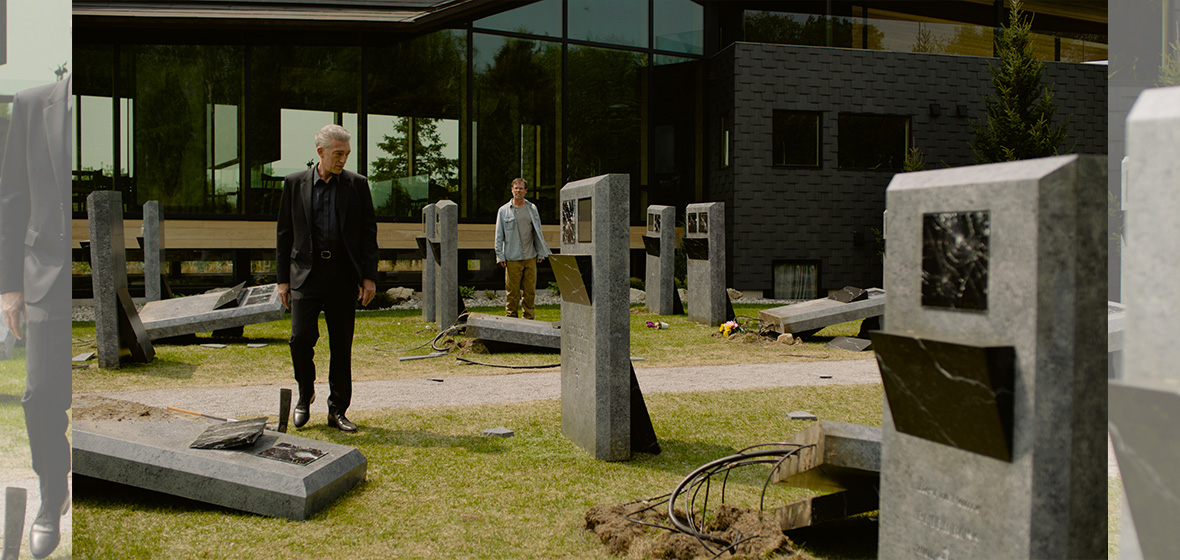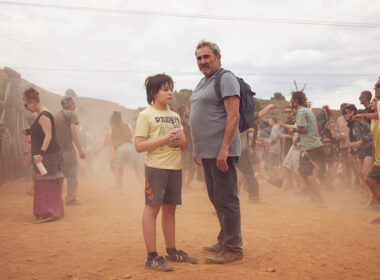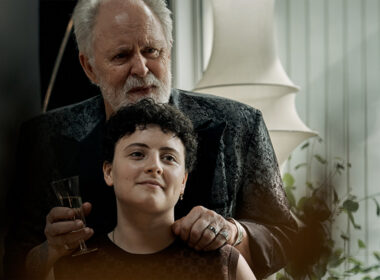Director: David Cronenberg
Writer: David Cronenberg
Cast: Vincent Cassel, Diane Kruger, Guy Pearce, Sandrine Holt
“Grief is rotting your teeth.” That’s not the best thing one wants to hear at the dentist, and yet that’s what the dentist told Karsh (Vincent Cassel). After the death of his wife Becca (Diane Kruger), the pain of loss is slowly decaying the core of his teeth. Karsh, though, seems amused by the conclusion. Everyone grieves in their own way.
Karsh’s coping mechanism is a technology he developed. A special shroud that scans a deceased and projects a real-time image of their decay either on a person’s phone or through a little screen installed on the tomb. He can see his wife’s slow decomposition and somehow feel more connected to her, but every night he’s haunted by dreams of Becca returning from visiting her doctor and ex-lover, each time more broken and damaged than before.
Through his obsession with technology, Karsh notices some strange growths in Becca’s bones, which he suspects to be cancer, perhaps related to the treatment she was undergoing. His investigation leads him to reconnect with his wife’s twin sister, Terry (also played by Kruger), and her ex-husband, Maury (Guy Pearce), a tech savant who Karsh assigns to find a group of hackers threatening his company.
David Cronenberg, whose wife Carolyn passed away in 2017, is no stranger to merging death and technology together, but here he addresses the difficulty of going through grief. Cassel, sporting a very Cronenberg-esque white hairdo, plays Karsh with the methodological precision of a scientist. No emotion distracts him from his goal, even when one day he decides to put on the shroud, he does it to feel what the dead feel – the irony being that the dead neither feel nor even know they are enveloped in a state-of-the-art technological wonder. Karsh shows emotions only in his dreams, when he embraces his wife carefully so as not to break her hips further, or hurt the scar on her arms.
Karsh’s stoicism may be related to his reliance on technology. His whole life is organised by Hunny, an AI avatar with the same voice as his wife, who looks like a cartoon version of her. In his car, he often lets the auto-drive take control. Even his company, built to reconnect with his wife, is a different option from, say, turning to religion for answers. Or better yet, by making a film about addressing one’s hardship in grieving the loss of a partner.
Even if the pacing is contained, there are a lot of recognisable Cronenberg traits. There’s a subplot involving twins, little instances of body horror from medical procedures, sex and pleasure in the same breath as death and pain. There is an aura of solemn contemplation as it forces us to address our own intrusive thoughts. Right at the start, Karsh takes a date to the cemetery to show and explain his life’s work. His date is partially impressed, maybe slightly disgusted, but nothing is followed up from there. In a way, Cronenberg is talking to us, to see where we stand in this moral grey area.
But death is not for everyone. Karsh and Cronenberg don’t find levity or humour in it, but they also don’t see value in dramas and tears. Maury is perhaps the most emotional character, and Cronenberg isn’t gentle to him, connecting his trait to deception and untrustworthiness: not at all subtle, but reading the message loud and clear for everyone in the back.
At the age of 82, Cronenberg still directs and writes his films with fresh eyes. He reminds me a little bit of Paul Schrader, another classic enfant terrible whose late career work stands as some of his most unique and more thoughtful, also addressing themes of death. But where Schrader looks into regret and memory, Cronenberg wants us to know how it affects the living, even if rots our teeth.
Verdict: 4 out of 5
For the stoics, and everyone who draws the Venn diagram between death and technology as a perfect circle.




